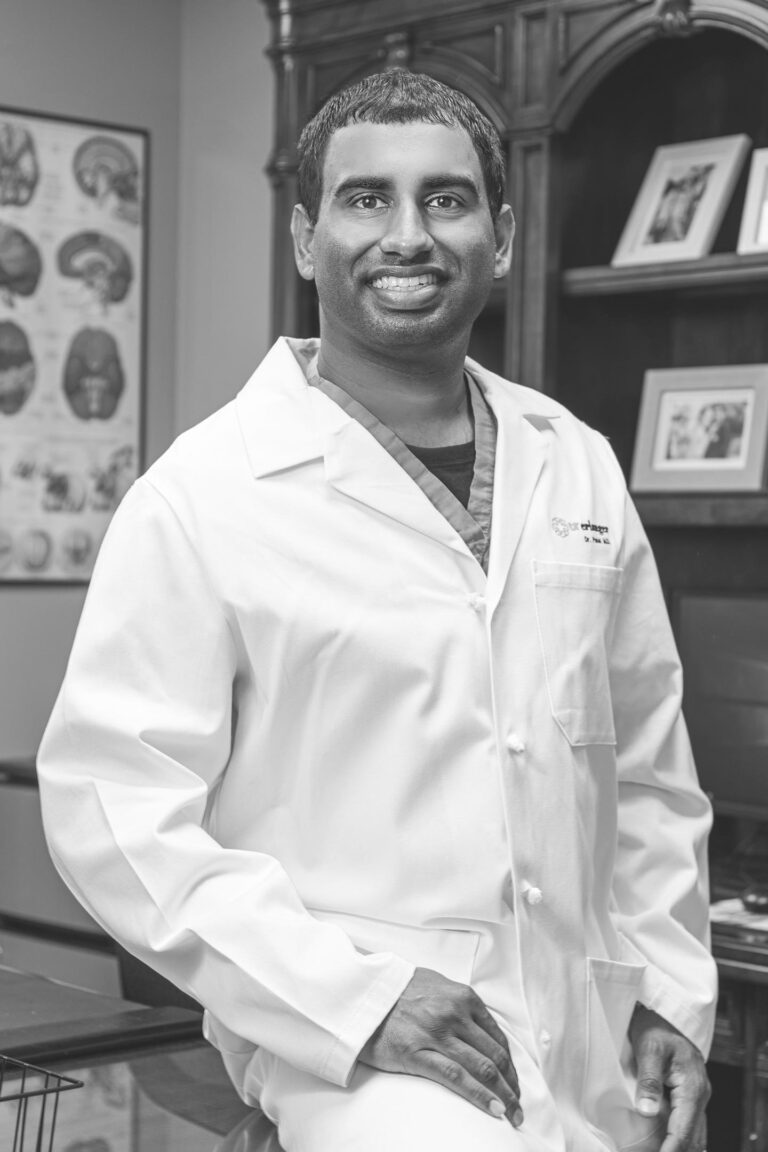Erlanger Neuroscience Institute
Establishing a Foundation of Trust
Dr. Prayash Patel has always been an interactive learner, and while attending medical school, he made a point to explore a number of medical specialties. “I enjoy variety in what I do, and neurosurgery was able to provide a degree of elegance in technique,” says Dr. Patel. “I love that one day I can see a patient suffering from chronic pain caused by a lumbar disc herniation, and the next day, I can be resecting a large brain tumor, both of which use different techniques and processes.”
And while it may be the variety and responsibility he experiences as a neurosurgeon that Dr. Patel really enjoys, he is also focused on creating a foundation of trust for his patients. “I try to be truthful and forthright with patients regarding diagnoses, prognoses, details of surgeries, risks, and expectations post-operatively,” says Dr. Patel. “Sometimes surgery is not the right path, and I never suggest surgery if I don’t feel it will greatly benefit the patient, because the time and financial sacrifices are not things to be taken lightly.”
I treat every patient and their family as if they were my own. I put myself in their shoes to understand the pain and frustrations they are experiencing or the anxiety about an upcoming surgery."
My Credentials
Doctor of Medicine Degree:
Mercer University School of Medicine – Macon, GA
Certifications:
Fellowship in Complex Spine and Minimally Invasive Techniques for Degenerative Spinal Disorders at Southmead Hospital
My Specialties
Degenerative Spinal Disorders
Minimally Invasive Treatment of Spinal Disorders


1. What do you love most about your profession?
I love that I am able to make a significant impact in my patients’ lives and often am quite literally able to help save their lives, such as in the case of severe head trauma or a life-threatening brain tumor. I enjoy seeing the different types of pathology that I can help treat.
2. What is your best advice for patients?
Don’t be afraid to ask questions about your condition and treatment plan. Trust between a physician and patient is vital and begins with communication. I always want to make sure patients feel comfortable and have the necessary information before making any decisions.
3. What do you see as the most exciting new development for your profession?
There are some exciting and emerging technologies in neurosurgery, including computer-assisted navigation in spinal and cranial procedures that can help increase accuracy and reduce operative time and complications.
4. Why did you choose to become a doctor?
I consider being a doctor and being trusted with someone’s medical care a great honor. It provides me with a fulfilling purpose in life, and I enjoy every minute of it wholeheartedly.
5. What would you consider to be your main strengths?
I consider my ability to multitask effectively one of my greatest strengths. Surgeons are often faced with juggling clinical duties, surgical procedures, and personal or family responsibilities. It is something I had to gain proficiency in early on and has been vital to not only my success as a physician, but also as a husband and father.
- 423.778.2233
- 979 E. Third Street, Suite C-920, Chattanooga, TN 37403
- erlanger.org/neuro

